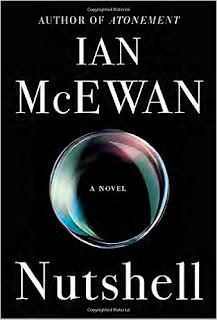539 pgs (The Generations trilogy #3)
Alone concludes Scott Sigler’s The Generations trilogy, a trilogy that got off to an excellent start with Alive, but which gradually lost some of its momentum and appeal for me by the time it was all over.
Em, along with the remaining Birthday Children, who woke up
with no memories on a ghost ship traveling through space, have finally found
refuge on Omeyocan, the distant planet their creators genetically engineered
them to survive on and sent them to thousands of years ago. Em united the
different groups that had formed after everyone woke up. She’s led them in
their fight to survive on Omeyocan. She’s helped them fend off their creators,
who sent them there so they could “overwrite” their consciousnesses and take
over their young healthy bodies once they had arrived. She’s helped them
establish peace with the indigenous species on Omeyocan, and now…it’s all being
threatened. They’ve learned other alien races are on their way to Omeyocan as
well, drawn by the same message the Birthday Children’s creators received
thousands of years ago. Each of those alien races shares the same intent to
conquer Omeyocan and call it their own. Em has to find a way to protect her
small group and make sure everything they’ve survived so far hasn’t been for
nothing.
The series began with such a great first book. I’ll admit
the idea seems more than a little derivative of The Maze Runner, but Sigler still pulled it off so well. The idea
was compelling and left me at the end of the first book with a lot of excitement
over what was to come. The last two
books were interesting and entertaining, but I was a little let down.
★ ★ ★ ☆ ☆






